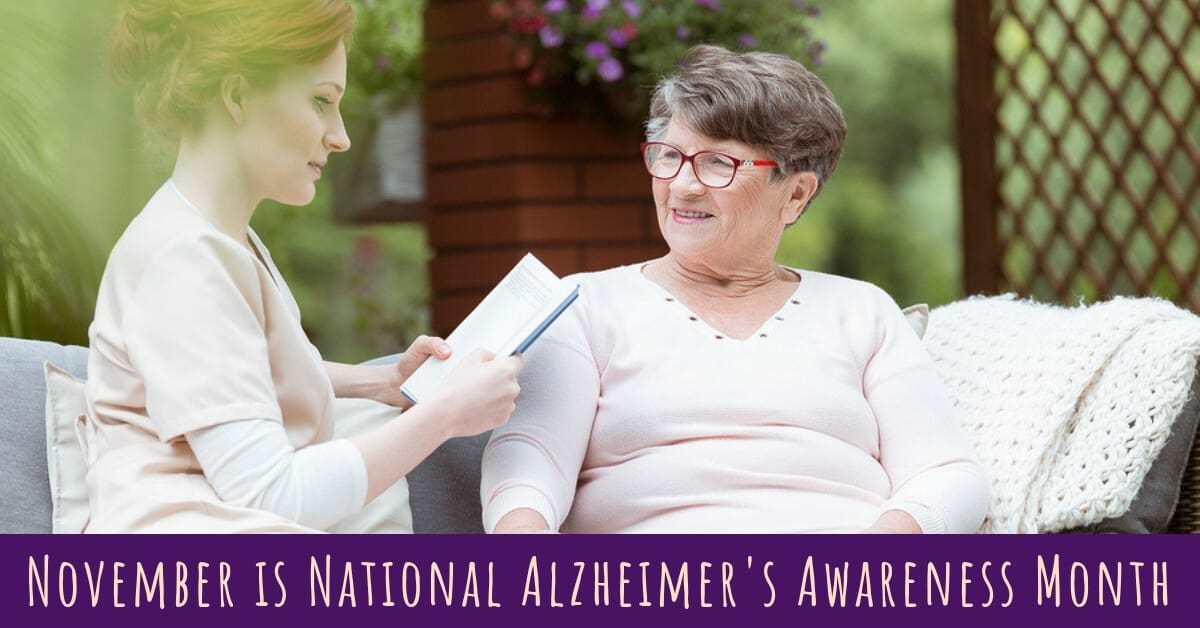As we approach the holiday season, we anticipate catching up with family members near and far. The holidays are some of the only opportunities we have to talk face-to-face with our loved ones. For those of us with older family members, we are reminded that hearing loss affects communication and connection at holiday gatherings.
As November is National Alzheimer’s Awareness Month, we at Hearing Wellness Solutions would like to draw attention to the link between the inability to hear in a conversation and the even more devastating experience of dementia.
Understanding Alzheimer’s Disease
According to the Alzheimer’s Association, dementia is “a general term for memory loss and other cognitive abilities serious enough to interfere with daily life.” Alzheimer’s disease makes up 60% to 80% of dementia cases, and while it is the 6th leading cause of death in the United States, it is not a common part of aging. Since 1983, when President Ronald Reagan established November as National Alzheimer’s Awareness month, incidences of Alzheimer’s have continued to rise among US adults. As such, much research has been devoted to studying this devastating disease.
Common symptoms of Alzheimer’s disease include difficulty remembering newly learned information, confusion, disorientation, mood and behavior changes, deepening confusion about events, time and place, and unfounded suspicion about family, friends, and professional caregivers. More serious symptoms include serious memory loss and behavior changes, and difficulty speaking, swallowing, and walking (Alzheimer’s Association).
You may be wondering – what’s the connection to hearing loss? In addition to age, family history, and hereditary, a report from The Lancet outlined the following risk factors: hearing loss, low level of education, physical inactivity, hypertension, Type 2 diabetes, obesity, smoking, depression, and social isolation.
Hearing Loss and Social Isolation
Many of us have struggled to communicate with a loved one with diminishing hearing abilities. Especially at louder and more rambunctious holiday gatherings, you may have had to make accommodations to improve communication for those with untreated hearing loss.
People with untreated hearing loss struggle with speech recognition, making conversations difficult. Many people with untreated hearing loss say that while they can hear, it is difficult to understand. Picking up audio information in the form of syllables, phonemes, or fragments of sound means that their brains must work harder to form understandable wholes. It is no surprise that many people struggle with understanding a conversation when information comes in such random fragments. They may use context clues to limited effect, though some of these assumptions can lead in the wrong direction. Each of us has made the same mistake, trying to use the rest of a social scenario to understand what is going on. Yet, the problem is just that much worse for someone who only gets pieces of sound, rather than complete words or sentences.
With these difficulties and frustrations with communication, people with untreated hearing loss tend to withdraw from social settings and avoid events where conversation is the centerpiece. In this way, the link between hearing loss, social isolation, and an increased risk for developing dementia becomes apparent.
Steps toward Better Hearing Health
The report from The Lancet draws an important conclusion: “Hearing loss might either add to the cognitive load or lead to social disengagement or depression, all of which could contribute to accelerated cognitive decline.” Furthermore, the report indicates that the prevalence of hearing loss occurs in 32% of people over the age of 55, which makes it a leading factor for developing dementia.
With such a profound link between hearing loss and Alzheimer’s disease, the urgency to seek hearing assistance has never been greater. Studies from Johns Hopkins University have indicated that the use of hearing aids significantly supports cognitive function. Hearing aids are the most common treatment for hearing loss, and they require careful fitting in order to provide optimal results. As the holiday season approaches, one of the best gifts you can give your family member with hearing loss is the encouragement to visit a hearing health professional for a hearing test and a consultation.


